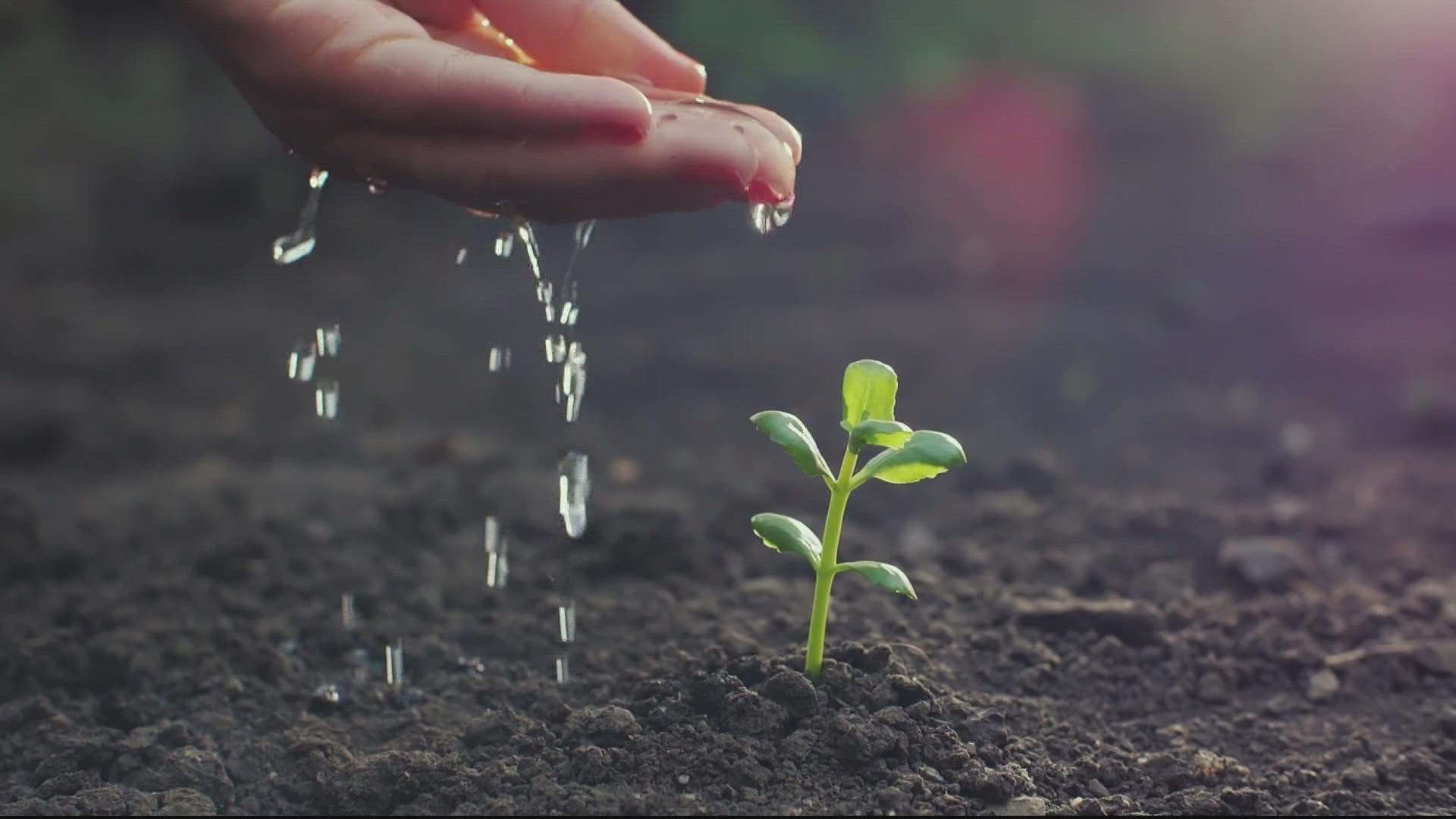WASHINGTON — Sitting in his pediatrician's office, Mickey Carlisle gets checked by Dr. Samantha Ahdoot.
"You're so much healthier than you were. Last week, you did not feel good," Dr. Ahdoot said.
Mickey suffers from allergies that now seem to flare up year-round.
Gail Carlisle, his grandmother and guardian, explained his symptoms.
"It's a nonstop cough, kind of choking sometimes and every now and again they do actually vomit," she said.
Gail moved to Alexandria in 2002 and has also noticed a significant shift in her seasonal allergies.
"I just don't remember it being this bad," she said.
Rising temperatures — associated with climate change — could be the culprit, exacerbating existing health problems.
“It can't be ignored anymore," said Dr. Ahdoot, Mickey's pediatrician and Chair of the Virginia Clinicians for Climate Action.
Dr. Ahdoot sees the impacts of our warming environment every day in her office.
“Allergies have always existed, children have always gotten pollen allergies," Dr. Ahdoot said. "But with warmer winters and higher concentrations of CO2 in the atmosphere, there's ample evidence now that pollen counts are rising.”
According to the Environmental Protection Agency, the average length of the growing season in the contiguous 48 states has increased by more than two weeks since the beginning of the 28th century. Longer growing seasons mean longer allergy seasons.
And the threats to our health stretch far beyond seasonal allergies.
According to the World Health Organization, between 2030 and 2050, climate change is expected to cause approximately 250,000 additional deaths per year from malnutrition, malaria, diarrhea, heat stress and so much more.
And there is a growing list of climate-sensitive health risks: Respiratory illness, water-borne diseases, vector-borne diseases, food-borne diseases, injury and mortality from extreme weather events, and — very concerning to lawmakers in Virginia — heat-related illnesses.
“I'm having to counsel a lot of families that their kids shouldn't go outside because it's gotten very hot and often unsafe,” Dr. Ahdoot said.
It's something that hits close to home for her personally.
Shortly after her son was born in Boston in 2002, the city experienced a record heat wave with eight consecutive days above 90 degrees. With only one air conditioning unit in her apartment, Dr. Ahdoot found relief from the heat at a local coffee shop with her son.
“I was scared that my baby was going to become overheated in the apartment," Dr. Ahdoot said. “When I was in that coffee shop I started reading a lot about climate change and how the warming temperature there in Boston was part of a larger phenomenon.”
She then got involved with the American Academy of Pediatrics Council on Environmental Health and now serves as the Chair for the Virginia Clinicians for Climate Action.
As a member of the board of the Virginia chapter of the American Academy of Pediatrics, Dr. Ahdoot helped pass new legislation in Virginia that would develop a heat illness protection program for young students and athletes.

